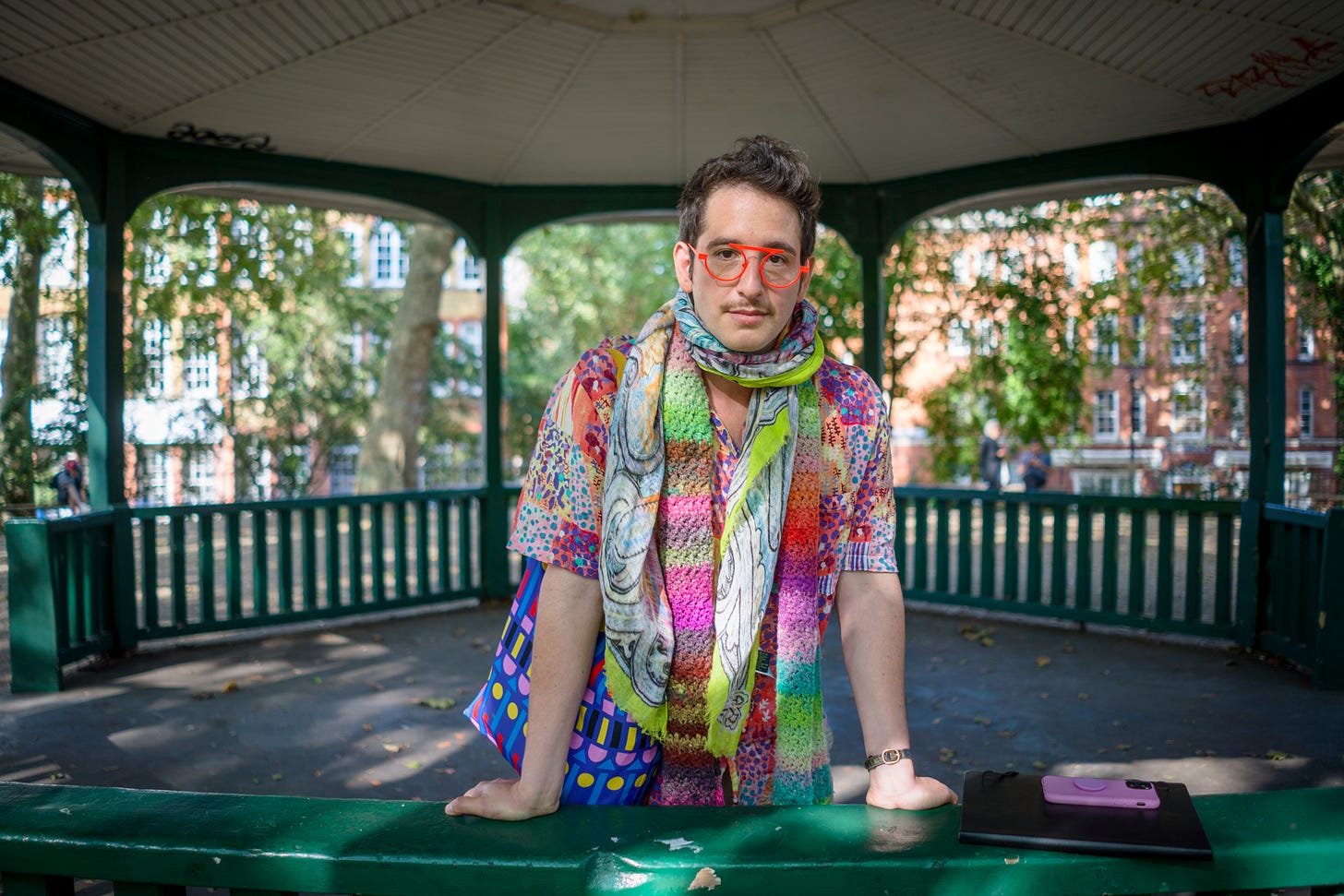Adam Nathaniel Furman: “I feel locked out of a magic world of communities”
The artist on searching for roots, then creating your own
Credit: Gareth Gardner
Hi, welcome back to Mixed Messages! This week, I’m speaking to Adam Nathaniel Furman, who is of Argentine and Japanese heritage. When I first saw Adam’s latest installation, Proud Little Pyramid, and read that it was a “celebration of being odd, loud, mixed, in-between, and fabulous,” I knew I wanted to get inside Adam’s mind. Read…




